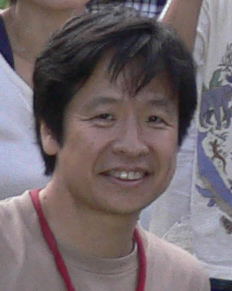|

|
Prof. Tamiki Komatsuzaki
Molecule & Life Nonlinear Sciences Laboratory,
Research Institute for Electronic Science,
Graduate School of Life Science,
Research Center for Integrative Mathematics, Hokkaido University, Japan
|
Abstract: In natural science, a cutting-edge of science has often been driven by new measurements. Mathematics can help us substantially in understanding the mechanism of the matter when one would know the mathematical formulation such as Hamilton’s equation of motion or reaction diffusion equation. However, the very existence of the mathematical formula is nontrivial for real, complex systems. Single molecule spectroscopy provides us with a new means to look deeply into the question of how an individual molecule behaves when performing biological functions in a thermally fluctuating environment. However, what information one can extract from the observed data is still an open question. We overview our new method which extracts the underlying reaction scheme, a state-space network, from the time series data of an experimental measurement. We demand that a time series analysis should provide not only an interpretation of the dynamical behavior but also the predictable power of the phenomena. Our method is based on the combination of information theory and wavelet multi-resolution decomposition analysis. The resultant reaction scheme does not rely on an a priori ansatz like local equilibrium and detailed balance in statistical physics. It is mathematically assured as unique, minimally complex and stochastic, but best predictive. We demonstrate the potential of our method by applying it to the analysis of an anomalous conformation in Flavin oxidoreductase dependent on the timescale of observation, including how to extract the underlying energy landscape of the system.
About the Speaker: Tamiki Komatsuzaki is a professor in Research Institute for Electronic Science at Hokkaido University in Japan. He received his doctorate from The Graduate University for Advanced Studies, Institute for Molecular Science, Okazaki, after which he conducted postdoctoral research at Institute for Fundamental Chemistry, Kyoto, and research associate in the University of Chicago, and joined as an associate professor at Kobe University in 1999. He has conducted Molecule & Life Nonlinear Sciences Laboratory at Hokkaido University since 2007. His research interests include Dynamical Origin of Chemical Reactions (High-Dimensional Phase Space Geometry to Dominate All Transports Phenomena, Dynamical Hierarchy, Normal Form Theory), and Single-Molecule Biophysics (Time Series Analysis, Information Theory, Molecular Memory).
Date&Time: June 23, 2014 (Monday), 11:00 - 12:00 a.m.
Location: 606 Conference Room


